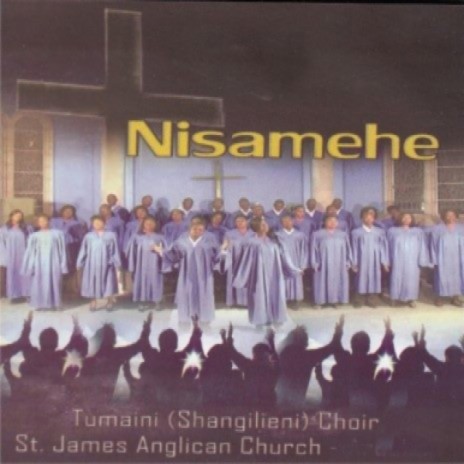

The full 7:44 version was only released on the Spanish and Portuguese 12" singles - the German 12" single (despite crediting the timing 7:42 on the label) was actually an edit of 5:35. The 4:06 mix (as featured in the accompanying music video) was only released in Spain and Portugal. The single was intended to be included in the group's untitled seventh album, to be released in the fall of 1983, but didn't happen. Liz Mitchell provided the song's lead vocals, backed by Reggie Tsiboe, Frank Farian, Marcia Barrett, Cathy Bartney, Madeleine Davis, and Judy Cheeks. Teddy Kalanda-Harrison, Peter Bischoff-Fallenstein Mambo Jambo (2001), The Best of African Songs, and othersīoney M. Only released as a single, with lyrics in English Released on several albums, including Jambo Bwana and Songs from Kenya (Them Mushrooms) and African Playground (Putumayo compilation) Partial list of "Jambo Bwana" versions Artist In 2016, a cover was made by Kenyan musician Mani Kollengode. The Safari Sound Band version "Jambo Jambo" has the central part of the lyrics changed, with references to reggae and mushrooms being replaced by other tourist-oriented common Swahili phrases such as Kenya ni nchi nzuri ("Kenya is a beautiful country"). version, released in 1983, is entitled "Jambo - Hakuna Matata" and lyrics are in English and almost completely different only the "jambo bwana" and "hakuna matata" lines have been preserved.

Some of the covers of "Jambo Bwana" come under different titles and have modified lyrics. The song was featured in the 2019 film Where’d You Go Bernadette, directed by Richard Linklater and starring Cate Blanchett. Them Mushrooms released the song in several of their albums, and both their version and cover version of the songs are found in many compilation of African pop music, including those dedicated to parties and children (such as the African Playground CD published by Putumayo Kids). The use of the Swahili phrase "hakuna matata" in Disney's " The Lion King" might be a reference to the chorus of the song. As a consequence of this popularity, many other bands covered the songs, in some cases with a similar success the version by Safari Sound Band, in particular, is one of the most played songs in tourist venues in East Africa. "Jambo Bwana" by Them Mushrooms was a huge commercial success, selling over 200,000 copies between 19 and getting platinum certification in Kenya. The original version by Them Mushrooms also included lines celebrating Swahili language, reggae music, Africa, and "mushroom soup" (a reference to psilocybin mushrooms). Its lyrics includes several common phrases and greetings in Swahili, such as habari gani? nzuri sana ("how are things going? very well") and hakuna matata ("no problem"). "Jambo Bwana" has been largely adopted as a hotel pop song, targeting a tourist audience. Some versions come under different titles, such as "Jambo Jambo" and "Hakuna Matata". It was first released in 1982 by Kenyan band Them Mushrooms, and later covered by a number of other groups and artists, including Mombasa Roots, Safari Sound Band, Khadja Nin, Adam Solomon, Mani Kollengode, and the German group Boney M. Loving this track." Jambo Bwana" (in Swahili " Hello Sir") is a Kenyan pop song also popular in Tanzania. He also adds: "if you hear at the end of the track, that's my Kenyan friend singing who brought me to Safari, recorded live from my phone near the Lions." This edit was done by who in 2018 came to Kenya for holiday and heard the song for the first time at Jacaranda Beach Resort and says: "it's an edit that reflects my feeling there and I love it." That gave him the idea to write a song with simple phrases in Swahili, which would help visitors learn the language while dancing to the band’s music.

One night, while taking a break between two songs, he heard tourists trying to speak Swahili and practicing words like Jambo (“Hi”), Habari gani (“How are you?”), and Hakuna matata (“No problems”).

The song 'Jambo Bwana' was created in 1979 when the band leader of 'Them Mushrooms', Teddy Kalanda Harrison, was performing in a hotel in Mombasa.Īt the time, the band was playing covers of European hits to entertain the tourists vacationing on the Kenyan coastline.


 0 kommentar(er)
0 kommentar(er)
